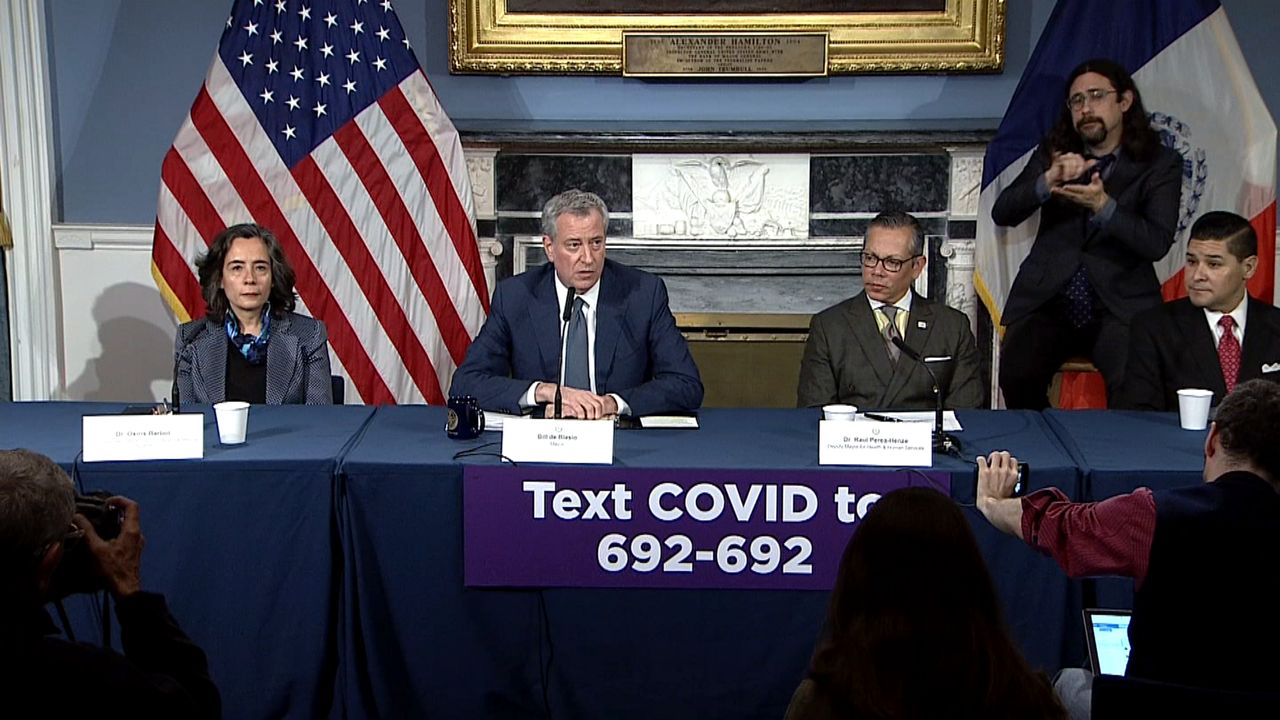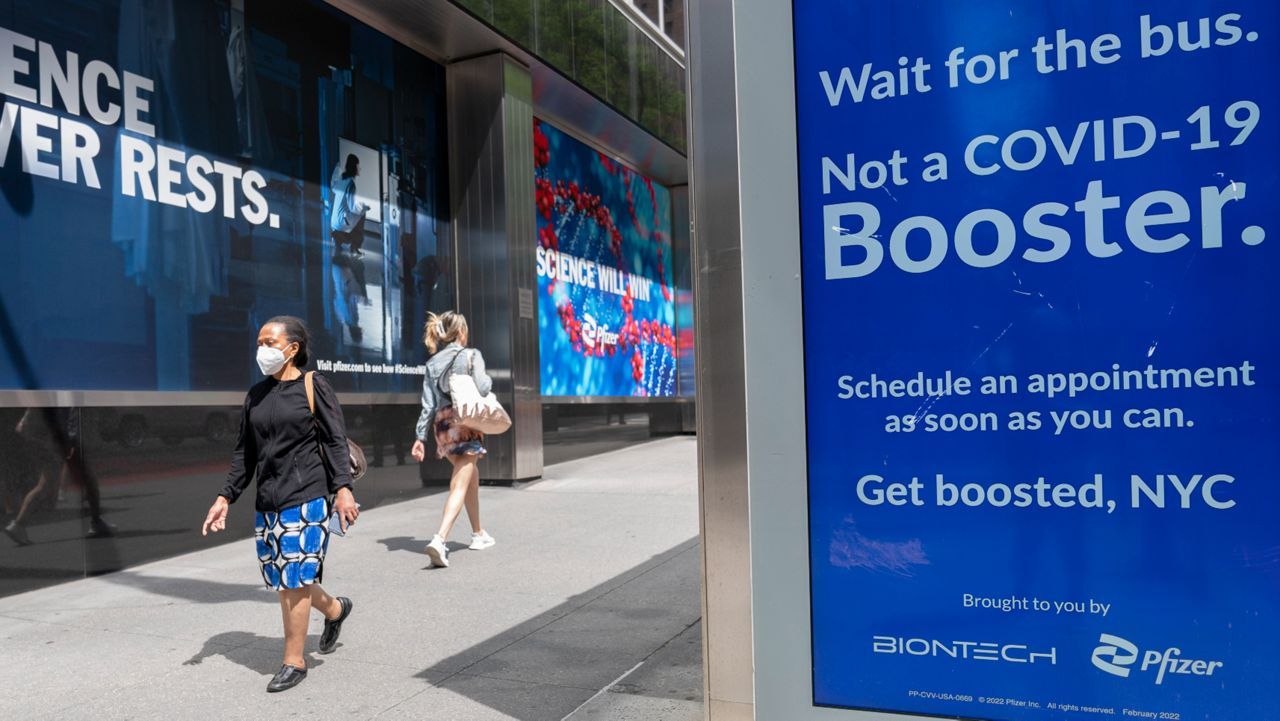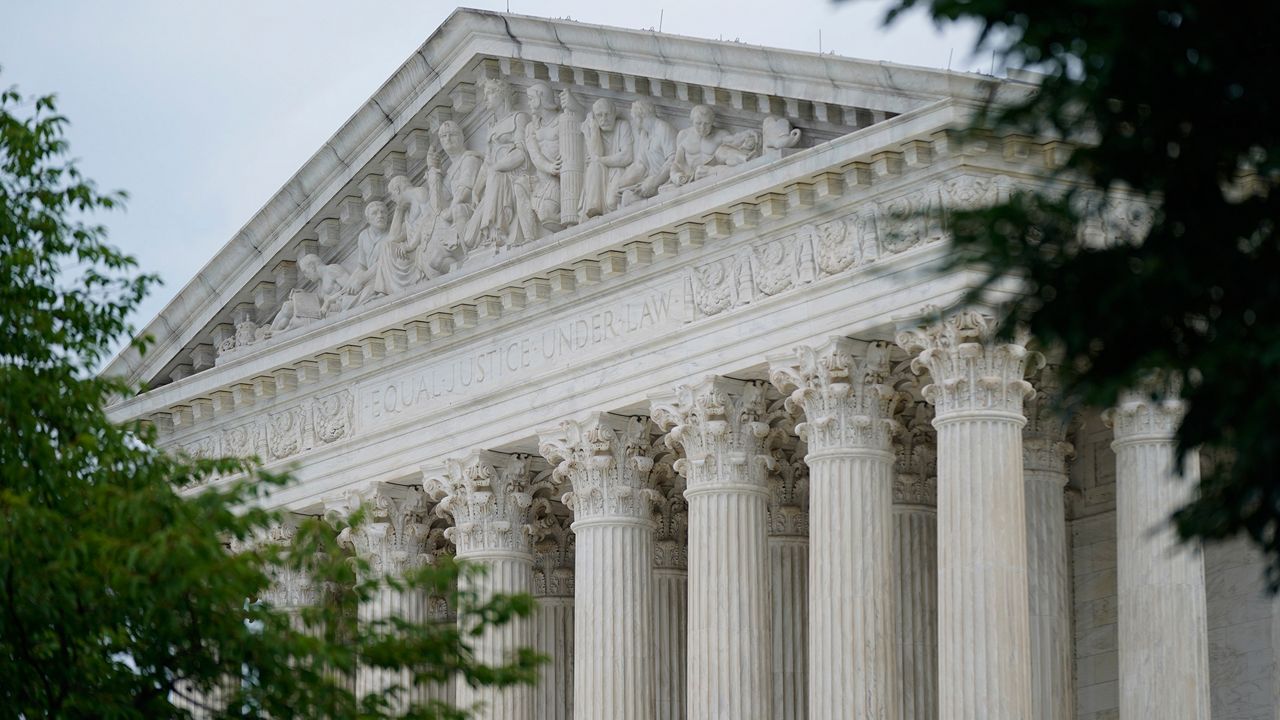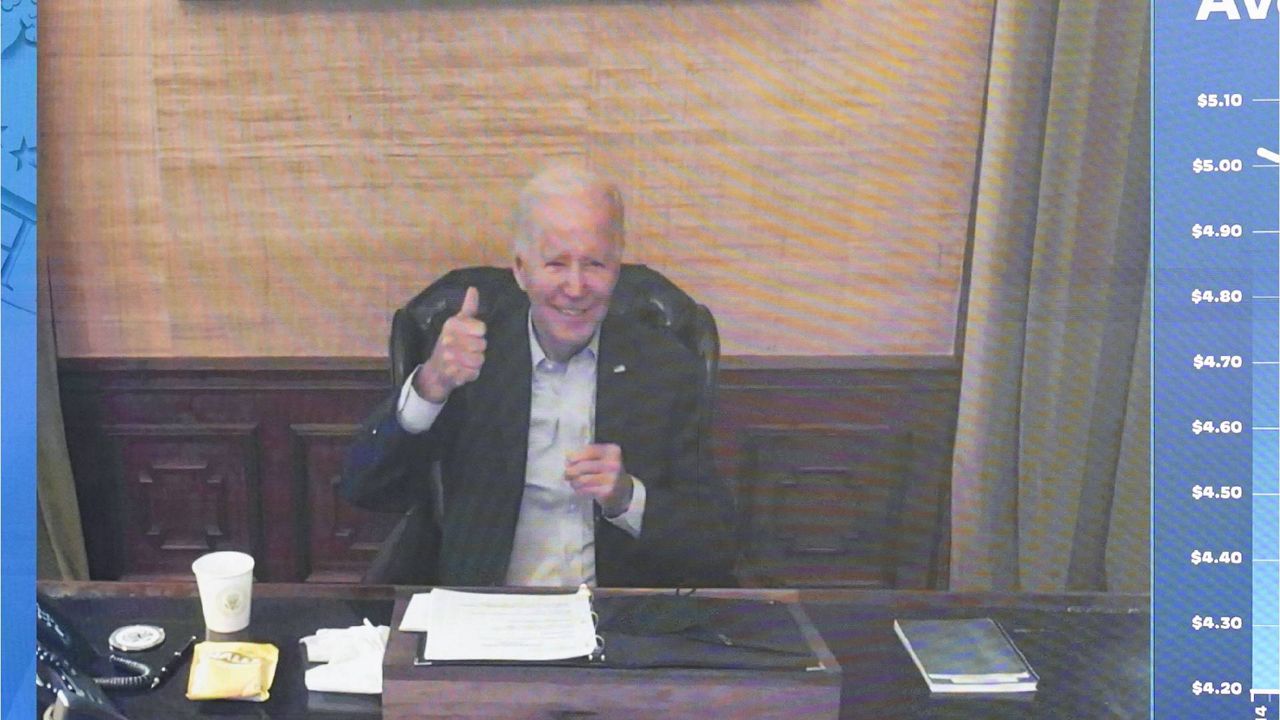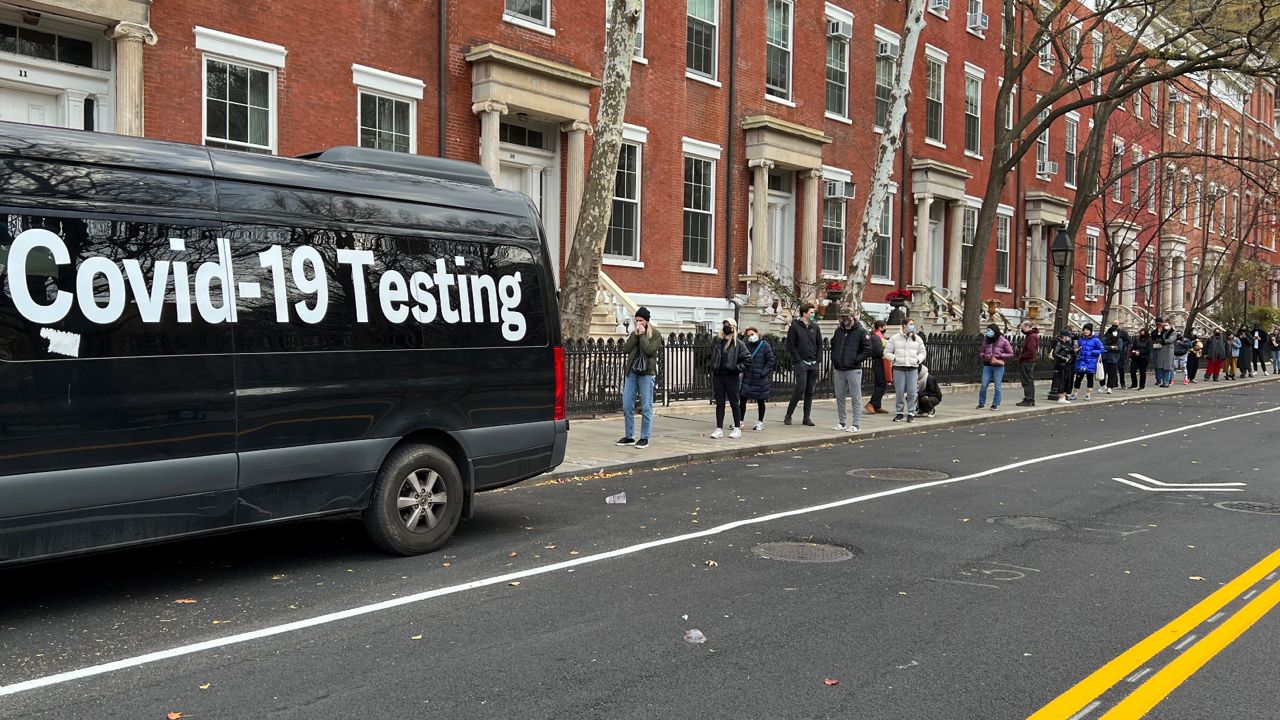In a news conference to update about the coronavirus Friday afternoon, Mayor Bill de Blasio once again stressed his desire to keep schools open as the new coronavirus continues to spread in New York City.
De Blasio said if the school system were to close, "you might not see it for the rest of the school year."
He also talked about where the city stands in terms of tests, masks and other supplies needed to fight the virus.
Here is a running log of updates:
5:27 p.m.:
The mayor says that there is "directionally, a lot of good" in the president's declaration of a national emergency.
He also chose to clarify what the state of emergency for the city means. (He added that a Medium post outlines them further.)
"State of emergency doesn't mean that every piece of our lives have changed overnight by the stroke of a pen, obviously," de Blasio said.
He said he was "troubled" by rumors of Manhattan being quarantined or everything being shut down, saying they "bore no semblance to reality."
"We have got to be sober and clear-headed in this crisis," de Blasio said. "It's not going away. It's going to be here a long time."
The mayor said everyday New Yorkers can call 311, go to nyc.gov/coronavirus or text COVID to 692692 to get updates from the city.
5:30 p.m.:
The mayor says the city's state of emergency means that the city "has the capacity to take actions, including very intense actions, to protect everyone and to address the crisis."
De Blasio says that the limitations on gatherings - banning gatherings of more than 500 people, and cutting gatherings of less than 500 people in half - is "the most important piece of the equation." It was done in conjuction with the state.
The mayor stressed that he wants people to still go on about their lives, and rest assured that things are being done to protect them.
He said the city has a lot of powers in reserve that it can use.
"As we have to use any of these emergency powers, we're going to announce that in real time."
5:31 p.m.:
The mayor says there are "three pillars" to protecting the city, and the health and safety of city residents: the city's schools, mass transit and health care system.
"My goal is to keep all three of those going as effectively as we can," the mayor said.
He said the health care system is the most important pillar. He said the city has real challenges ahead, but he wanted to stress that the city has "the biggest, best public health system in America, and the biggest, best health care system overall of any city in America by far, and the talent pool - doctors and nurses and technicians, and all types of medical professionals and support staff - there's just no place in the country that has this level of talent all amassed in one place."
"We are going to need them all. We're going to need every single health care worker to be a part of this solution," the mayor said. "We need to protect them. We need to make sure that their skills are used to the maximum. We need to find everyone who could be brought into our service, including former health care workers or people who want to come here to help."
5:35 p.m.:
In reference to schools, the mayor mentioned a report from the CDC that he says illustrates the intended, and unintended, consequences of closing schools.
De Blasio mentioned the concern in the school community over leaving the schools open, but he also mentioned that many parents want school to be kept open because they do depend on it.
He referenced a statement from 1199 SEIU, which says closing schools with no care plan for children would "place a dire strain on NYC's healthcare infrastructure."
He said the city will continue to make adjustments like canceling, or moving online, all non-essential or non-instructional activities; canceling work that takes school officials from schools to schools, except for essential work, which will be moved online; practicing "social distancing" in school cafeterias where it can be created, or move breakfast and lunch into classrooms where it cannot; and re-work physical education to reduce the number of kids in close proximity, as well as moving classes outdoors when the weather permits.
City Council Speaker Corey Johnson, and teachers' union president Michael Mulgrew, had called for schools to be closed. De Blasio says he's been in touch with Mulgrew, and said that "even though we have some differences on the approach, we're going to work together."
5:40 p.m.:
De Blasio said the city is seeing an impact on school attendance based on the global news coming out over the last day or two.
He said school attendance went down to 85 percent on Thursday, which was a little lower than normal. On Friday, he said attendance went down to 68 percent. That, however, still means more than 600,000 students attended city schools on Friday.
5:45 p.m.:
De Blasio says there are 154 confirmed cases of coronavirus in New York City - 59 more than at his press briefing on Thursday.
The mayor says the last borough breakdown they were given indicated that 35 cases were in Manhattan, 24 in Brooklyn, 26 in Queens, 13 in the Bronx and 5 on Staten Island. He says those numbers, which add up to less than 154, are given prior to the most recent update of the total number of cases.
Twenty-nine people are in mandatory quarantine, and 1,747 are in mandatory isolation.
5:46 p.m.:
De Blasio said the FDA approved automated testing for one company Friday morning, but said it needs to be approved for other companies. He said the president's remarks on testing today were promising on that front, but he stressed a constant uptick in federal support for testing is needed.
He added that the city is concerned that they are not getting the support needed on the supply front, for items like masks. He said new guidance from the CDC and WHO on masks indicates that there are other masks besides the N95 masks that prevent transmission of the disease.
"Our ideal is to get a substantial number of N95 masks, but we are more confident now that surigcal masks can achieve a lot of what we need for sure," de Blasio said.
The city has 503,000 N95 masks right now. The city has asked the FDA for 2.2 million more; they have only been approved for 76,000.
The city currently has 16 million surgical masks in its supply right now, and will have 25 million masks arriving.
De Blasio said the city has requested 800,000 face shields, 95,000 surgical gowns and 600,000 pairs of surgical gloves. He said the city is waiting on answers from the federal government on all of that.
5:52 p.m.:
The state court system confirmed with the city that it will suspend eviction actions through the courts.
The Real Estate Board of New York also said its member organizations will suspend evictions for the next three months.
This comes after the city said it would suspend all evictions in NYCHA buildings or in any affordable housing buildings under its control.
De Blasio said the city will step in in any way they can to assist anyone they see being evicted, or where there is an issue where someone cannot pay the rent.
6:15 p.m.:
City Health Commissioner Dr. Oxiris Barbot says the most appropriate use of a mask is for people who are symptomatic so they can avoid spreading it to other people,
The mayor added that the city is not discouraging other people from using masks. He called mask wearing "not a perfect separation from the world."
6:23 p.m.:
A lot of the questions from the Q-and-A portion of de Blasio's news conference dealt with whether or not schools should be closed. Here are some of them:
6:29 p.m.:
The mayor was asked what happens if he gets the coronavirus.
"If it happens, it happens," he said. "I'm not scared. I would go into isolation, unless it was something where they told me I needed to be in the medical setting, and I would do whatever the doctors told me to do, and I'd constantly update you guys, and I would run the city from wherever the hell I was."
"You can put me anywhere, give me a device, any device, and I can run the city of New York from it," he added.




